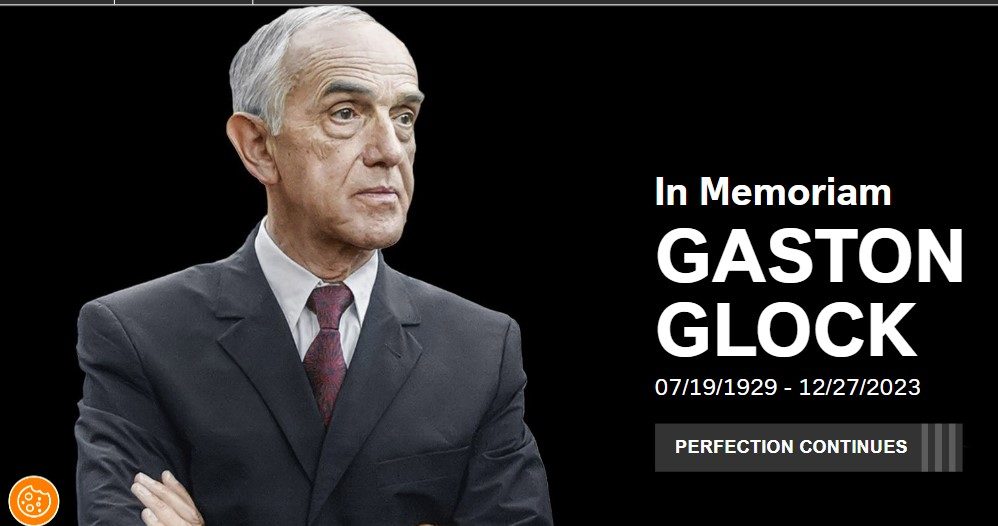Glock Inc. confirmed the demise of its founder on the company’s website, providing no specific cause of death.
The website featured a solemn tribute, “In Memoriam Gaston Glock 07/19/1929 – 12/27/2023,” accompanied by a photo of Glock in a dark suit and maroon tie, standing with crossed arms against a black backdrop.

The company also acknowledged Glock’s impact, stating that he not only revolutionised the small arms industry in the 1980s but also established the Glock brand as the outstanding leader in the global handgun industry.
The Glock pistol, favoured by law enforcement agencies, made its mark in blockbuster movies like “Die Hard 2” and “U.S. Marshals,” and found mention in numerous rap songs, including Wu-Tang Clan’s “Da Glock.”
Born in Vienna, Austria, in 1929, Glock’s company initially supplied knives and bayonets to the Austrian Army in the 1970s. In 1980, he discovered the army’s requirement for a new handgun.
Despite not personally owning a handgun, Glock gathered experts to assist in creating the “pistol of the future.” During the project, he underwent training on handguns and test-fired prototypes with his left hand, ensuring the continuity of his design work in case of accidents.
The outcome was the Glock 17, a groundbreaking semi-automatic handgun crafted from industrial plastic or polymer, featuring a magazine capacity of 17 rounds and an additional round in the chamber.
The Austrian Army adopted the Glock as its new service pistol in 1983, and the Norwegian Army followed suit the next year, designating it as their standard sidearm.
Glock’s influence extended to the United States, where the company established its headquarters in Smyrna, Georgia, in 1985.
It claimed that over 65% of U.S. federal, state, and local agencies have been equipped with Glock pistols.













